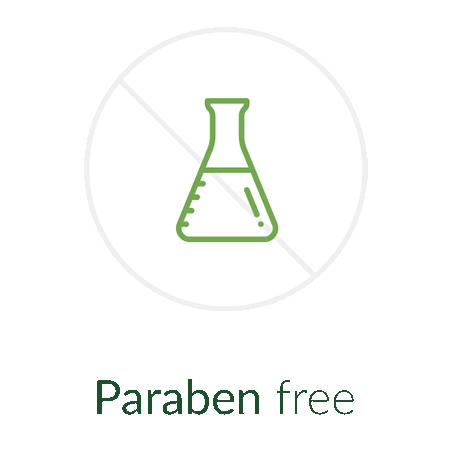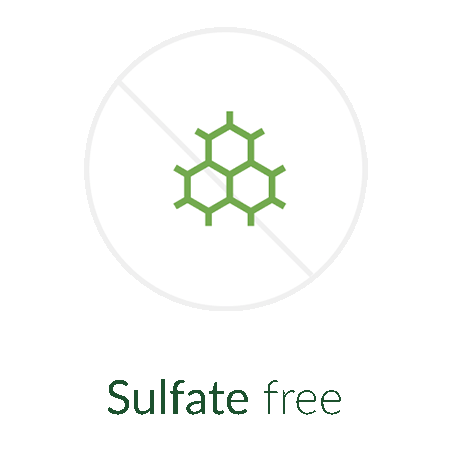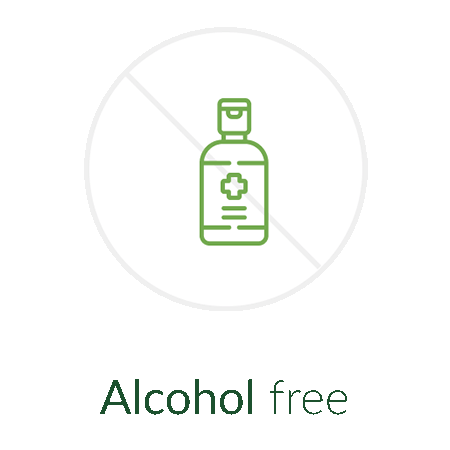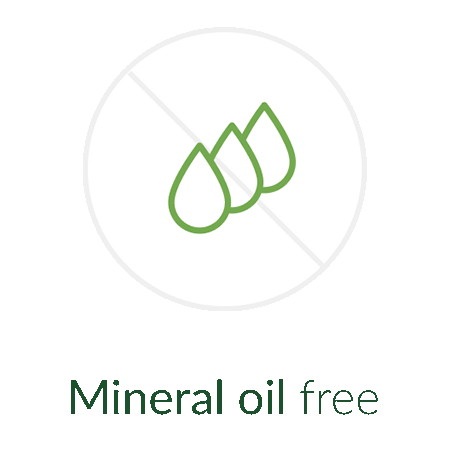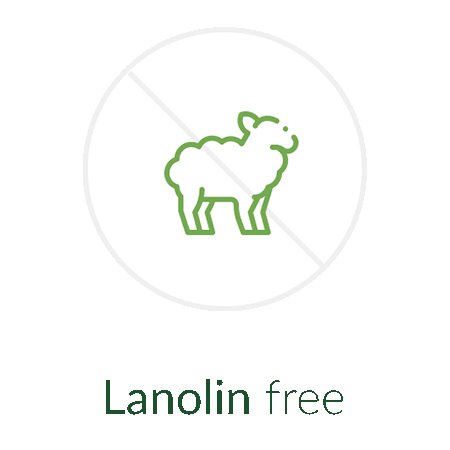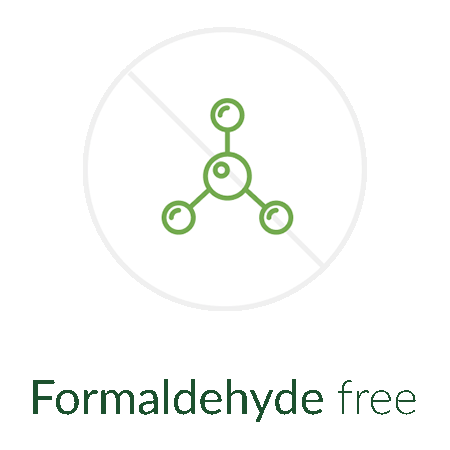
WHAT IS PSORIASIS?
Psoriasis (suh-rye-ah-sis) is a condition that causes the body to make new skin cells in days rather than weeks. As these cells pile up on the surface of the skin, you may see thick, scaly patches.
Psoriasis affects around 2% of people in the UK. It can start at any age, but most often develops in adults under 35 years old, or between the ages of 50 to 60, and affects men and women equally.
The severity of psoriasis varies greatly from person to person. For some it's just a minor irritation, but for others it can greatly affect their quality of life.
Psoriasis is a long-lasting (chronic) disease that usually involves periods when you have no symptoms or mild symptoms, followed by periods when symptoms are more severe.
There are several types of Psoriasis:
Scalp psoriasis which affects the scalp and causes large dandruff like flakes and makes the scalp feel tight and itchy.
Guttate psoriasis which usually affects children, teens, and younger adults and looks like a rash of small spots.
Pustular psoriasis which presents as the name indicates in fluid-filled pustules which form on top of red or darkened skin either on the palms of the hands or soles of the feet or more generalised across the body.
Plaque psoriasis is the most common type of psoriasis. Plaques are thick, scaly patches that develop on the skin and about 80-90% of people living with psoriasis get plaques, hence they have plaque psoriasis.
Plaques can appear anywhere on the skin, but you’re most likely to find them on the knees and elbows as well as the lower back and scalp.
Plaques tend to vary in size. They may appear on the skin as a single patch or join together to cover a large area of skin. Regardless of the size, plaques tend to be itchy and without the correct treatment, the itch can become intense. In addition to the itch, skin can sometimes sting, burn, or feel painful and tight.
WHY DOES IT HAPPEN?
Skin cells are normally made and replaced every 3 to 4 weeks, but in psoriasis this process only takes about 3 to 7 days. The resulting build-up of skin cells is what creates the patches associated with psoriasis.
Although the process is not fully understood, it's thought to be related to a problem with the immune system. This is your body's defence against disease and infection, but it attacks healthy skin cells by mistake in people with psoriasis.
Possible triggers of psoriasis include an injury to your skin, throat infections and using certain medicines.
IS PSORIASIS SHORT OR LONG TERM?
Unfortunately, most people who get psoriasis, whatever type it is, have it for life. Because psoriasis tends to be a life-long disease, it’s advisable to learn about it and see your GP who may refer you to a dermatologist. A bit of knowledge and help from a professional can give you some control over the condition resulting in clearer skin, a general feeling of improved health, and preventing the psoriasis from worsening. Psoriasis can be managed, and with the right treatment and advice, it is possible to live well with psoriasis.
Gaining control often involves:
- Discovering (and then avoiding) what triggers the condition
- Adhering to a good psoriasis skin care routine
- Living a healthy lifestyle, where possible
- Using prescribed medication when necessary
Seeing your GP or a dermatologist has another very important benefit; Psoriasis can increase your risk of developing certain diseases, such as psoriatic arthritis or diabetes, and your dermatologist can watch for early signs of disease. If you do develop another disease, early treatment can help to prevent it from worsening.
IS PSORIASIS CONTAGIOUS?
The condition is not contagious, so it cannot be spread from person to person.
10 TIPS FOR TREATING PSORIASIS SKINCARE
1. Keep Your Skin Moisturised
It's one of the most effective yet easiest things you can do for irritated skin. It can help your skin repair and reduce dryness, itching, redness, soreness, and scaling.
Choose your moisturiser based on how dry your skin is. Ointments are thick, heavy, and good at locking in moisture whereas Lotions are thinner and get absorbed more easily. Or you can pick a cream that falls somewhere in between.
After your bath or shower is a good time to gently pat on the moisturiser. Reapply throughout the day and when you change clothes. Use more on cold or dry days.
2. Have A Warm Bath
Soak in warm water for just 15 minutes each day and use a mild soap to help soothe itchy spots and remove dry skin. Try adding oil, finely ground oatmeal, Epsom salt, or Dead Sea salt to your bath. Remember though, hot temperatures and harsh soaps can be hard on skin that's already sensitive and spending too much time in the water can dry your skin, which can worsen the itch.
If you don't have time for a bath, a shower is fine but for no longer than 5-minutes under warm water, or you can put a wet towel or cold compress on the problem areas; the nerves that send itch signals to the brain don't work as well when they are cold.
Try not to rub your skin with the towel as you dry off, but gently pat dry instead. The rubbing action can make sores worse and even cause new ones. Follow immediately with a moisturiser.

3. Sunlight Solver
The ultraviolet (UV) light in sunlight can slow the growth of skin cells, so small doses of sun can be a good way to soothe and improve psoriasis lesions. Even indoor light can make a difference.
Try to get some sun two or three times a week but remember to use sunscreen, such as Pevonia's Hydrating Sunscreen Broad Spectrum SPF40 on your healthy skin. Too much sun (or sunburn) raises your risk of skin cancer and may make your outbreaks worse - find out more by reading our Sun Protection - indoors and outside Blog here.
4. De-Stress
Studies show that stress can make psoriasis and itching worse, and it’s also been recorded that a specific stressful event can actually trigger an outbreak. Simply by lowering your stress levels can help to calm the symptoms.
There are lots of ways you can lower stress which in turn will help you fight off infections that may trigger flare ups:
- Eat healthy
- Drink plenty of water
- Exercise regularly or go for long walks at the end of a busy day
- Get plenty of sleep
- Take up Yoga and/or Meditation
- Learn new breathing techniques
- Lean on the support of your family and friends
- Take time for what’s important to you
Contact your local GP surgery to find out how to get emotional support during psoriasis treatment. There are also support groups for people with psoriasis, such as The Psoriasis Association, where you can speak to other people with the condition.

Pevonia’s De-Stress Escape Aromatic Oil features a blend of premium and delicate natural oils to encourage a feeling of increased well-being and utter relaxation. You can use it for:
- Wellness Inhalation ritual to induce sleep or decrease feelings of stress and anxiety
- Apply on the wrists and ears for a relaxing and heavenly aroma
- Use as a localised massage medium to relieve tension
5. Be Kind To Your Skin
Avoid harsh products like lotions with alcohol, deodorant soaps, and even some laundry products as these can inflame your sensitive skin.
Did you know that all of Pevonia’s products are free from parabens, alcohol, lanolin, mineral oil, PABA, artificial colours, formaldehyde, sodium lauryl sulfate, and urea?

Find out more here.
6. Try Not to Scratch and Pick
We all do it! When you itch, you want to scratch, but this can tear open your skin, making way for infection-causing germs. Scratching may also make sores appear where there weren't any before. If possible, keep your nails short, and soothe the itch with a moisturiser.
Picking at your skin can also lead to infection, so when you have the urge, close your eyes, breathe deeply, and gently rub on moisturiser instead.
7. Caring for your Scalp
There is nothing worse than an itchy scalp and it’s even harder not to scratch it and pick at the scaly skin which then causes thick crusted sores. Intense itching can affect your sleep and everyday life, plus scratching a lot can lead to skin infections and hair loss.
The first line of defence is treatment you use directly on your skin i.e. medicated shampoos, creams, gels, lotions, foams, oils, ointments, and soaps. You can get some of these products over the counter, but stronger ones require a prescription. To work, these treatments must be put on your scalp, not just your hair. Follow the directions exactly until your skin heals, which can take 8 weeks or more. Once your psoriasis has cleared, you can help keep it from coming back by shampooing regularly with a product that contains coal tar or other medications.
8. Stop Smoking
Smoking is known to trigger flares. Talk to your GP to help you choose the best way to quit. For some, nicotine patches can make psoriasis worse.
9. Limit Your Alcohol Intake
Heavy drinking can trigger symptoms; it can even be dangerous when combined with some psoriasis drugs. If you drink, try to keep it moderate i.e. one drink a day for women or two for men.
10. Light therapy
Light therapy is a first-line treatment for moderate to severe psoriasis, either alone or in combination with medications. It involves exposing the skin to controlled amounts of natural or artificial light. Repeated treatments are necessary. Talk with your GP about whether phototherapy is an option for you.
HOW CAN PEVONIA HELP?
 Pevonia’s Jasmine & Lavender BodyRenew Bath & Body collection is infused with all-natural ingredients to enrich your skin with restorative and de-ageing benefits. It is especially beneficial to assist and provide support to improve your comfort when it comes to symptoms such as itching, tight feel, dryness and desquamation (the shedding of the outer layers of the skin), possible reddening of the margins of the lesions, etc.
Pevonia’s Jasmine & Lavender BodyRenew Bath & Body collection is infused with all-natural ingredients to enrich your skin with restorative and de-ageing benefits. It is especially beneficial to assist and provide support to improve your comfort when it comes to symptoms such as itching, tight feel, dryness and desquamation (the shedding of the outer layers of the skin), possible reddening of the margins of the lesions, etc.

Likewise, other Pevonia products that help to thoroughly moisturise, soothe, calm, cool, recover, and normalise irritated skin, or that contain ingredients which are skin friendly and can support alongside other dedicated treatments for Psoriasis are:
- CleanRefresh Foaming Oil Cleanser
- Sensitive Skin Collection
- Dry Oil Body Moisturiser
- Phyto-Aromatic Mist
All of these products can also be found in our By Symptom - Eczema or Psoriasis section - here.
Find out more about Pevonia's BodyRenew line and how it can help support your skincare regime to tackle this irritating skin condition (please be advised that the Pineapple & Coconut and Peach and Vanilla lines have been discontinued):

